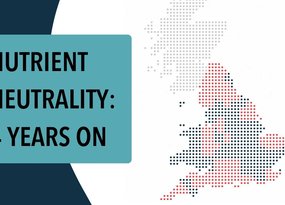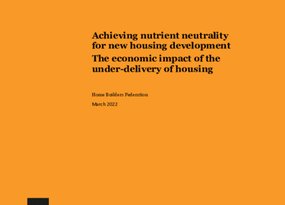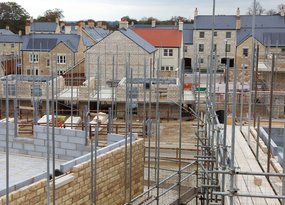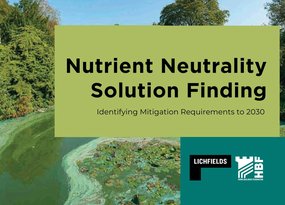Alleviating the impact of the moratorium on home building
In June 2019 Natural England issued advice to 74 local planning authorities, preventing them from granting planning permission for new homes unless nutrient neutrality could be achieved.
This is despite evidence that the occupancy of new homes makes a negligible contribution to nutrient levels in rivers.
We estimate more than 160,000 new build homes have since been blocked by the disproportionate moratorium on development, which spans more than a quarter of local authority areas, from Cornwall to the Tees Valley.
160,000 homes
are estimated to have been blocked by Natural England's disproportionate moratorium on home building.
41,000 fewer
homes will be built each year until solutions are found.
Up to £25,000
is spent on nutrient mitigation schemes for every home built to secure planning permission.
What is the nutrients issue?
High levels of nutrients (such as nitrogen and phosphorus) in freshwater habitats and rivers can cause excessive growth of algae and bacteria, which pollutes the water.
Government’s research has found agricultural run-off and the inaction of water companies to maintain infrastructure to be the overwhelming causes of the nutrients entering our waterways.
Despite this, the Government has given water companies until 2030 to upgrade their processes and U-turned on a plan to reduce access to high nutrient fertilisers for farmers.
The only intervention aimed at addressing river pollution has seen Natural England put a block on much-needed new homes in 74 local authority areas, while planning permissions continue to be granted for new agricultural plants.
Planning permission for development in affected catchment areas will only be granted if mitigation measures are in place to achieve ‘nutrient neutrality’.
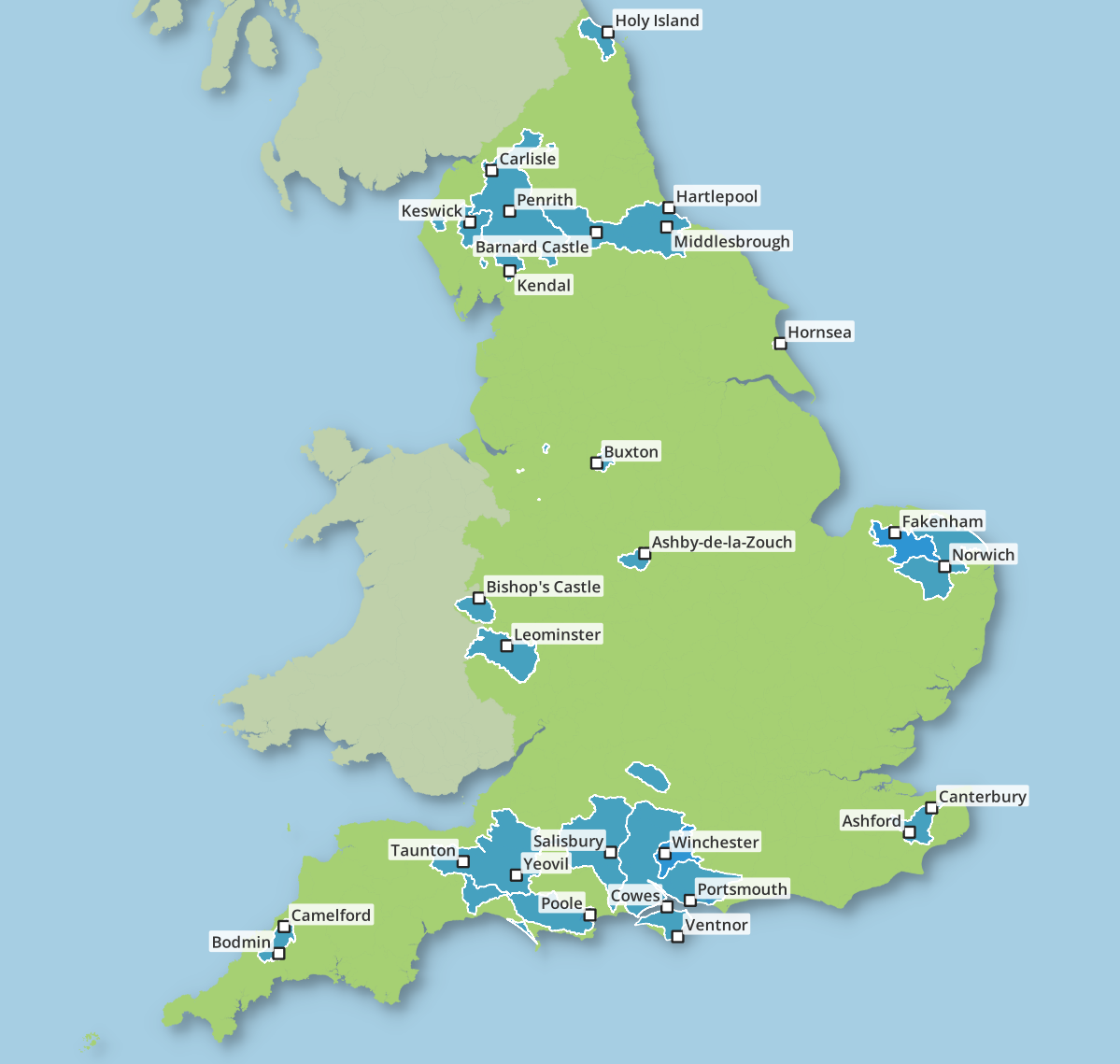
However, very few of the required mitigation schemes currently exist. Instead, builders have been forced into buying trout or pig farms and taking them out of use in an effort to unlock new housing sites and keep staff employed.

Contributors of nutrients
In 2023, we published a report with Brookbanks to highlight the minimal contribution made by residents of new homes towards nutrient levels in rivers.
The report finds that the occupancy of new homes accounts for just 0.29% of total nitrogen emissions each year and 0.73% of total phosphorus. (nitrogen and phosphorus make up ‘nutrients’).
The research also puts nutrient output from residential properties in the context of agricultural activities which is responsible for around 70% of the nitrogen that finds its ways into rivers and streams. Each dairy cow in affected areas produces Nitrogen discharges equivalent to 29 homes while each sheep is responsible for the same amount of Nitrogen as three family homes.
Our asks of Government
Fundamentally, we would like Government to take action to lift Natural England’s disproportionate moratorium on house building and focus on tackling the root causes of the issue.
More action is required to improve the conditions on the 26 catchments where home building is currently on hold. Water companies fail to invest in infrastructure despite billions of pounds of payments from developers. Farmers continue to be granted licences to spread harmful nitrates on land in Nitrate Vulnerable Zones.
We are calling on Government to...
Bring forward new legislation
We want Government to bring forward new legislation to enable the 160,000+ new homes currently blocked by Natural England’s nutrient neutrality mitigation measures (and other issues such as water neutrality) to be built.
Review the nutrient calculator
In the short term, Government needs to commit to working with Natural England to review its nutrient mitigation calculator to reflect the minor contribution <1%) that the occupancy of new homes makes toward nutrient pollution.

Hold water companies to account
Require water companies to account for how they spend developer fees and invest in their networks to meet the future housing needs of the population.
Extend planning permission
Extend planning permission for sites in affected catchments that have been held up due to nutrient neutrality requirements.


